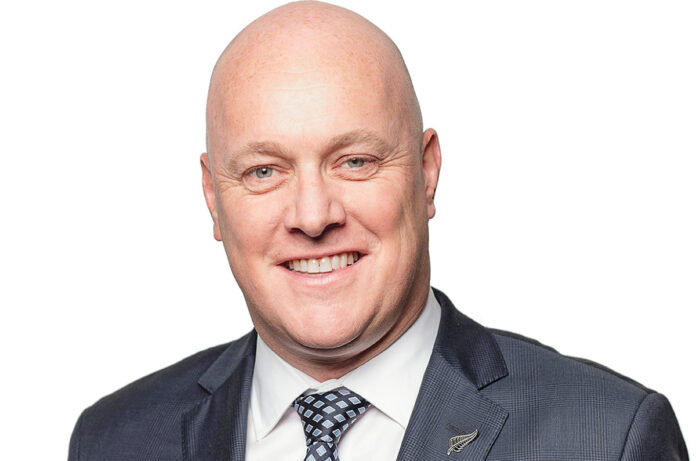Concerns regarding seniors’ health, retirement income and bridging finance for retirees were raised by Grey Power at Parliament last month.
In an effort to spur more action on important issues troubling New Zealand seniors, Grey Power president, Gayle Chambers, vice president, David Marshall and the secretary, Jo Miller met with the Prime Minister, Christopher Luxon and the Minister for Seniors, Casey Costello.
Mrs Chambers appealed for greater focus on improving health services, in particular cutting wait times for specialist appointments and bringing forward geriatric surgeries such as hip, knee, shoulder and cataract operations.
She said it was unacceptable that people were waiting up to two years for surgeries and if not attended to in that time were then required to go back to their GPS for another specialist referral.
The Prime Minister advised that the Government was working to reduce wait times including outsourcing surgeries to private services plus allocating considerable funds to private services in order to ease the burden on the public system.
He said because infrastructure was poor, the Government was grateful for any location where operations could be carried out to ease waiting times even if it meant attending to patients from out of area.
Wait times aside, Mrs Chambers said some patients were denied access to the public system for glaucoma or macular degeneration consultations. They were, instead, being advised to consult with their optician which incurred extra cost which many could ill afford. The Prime Minister promised to look into this issue.
Disparities in home care services were also raised. Grey Power urged the Government to remove inconsistencies in home care provision and stop services being cut due to budget restraints.
“Cutting such services negatively affects care, puts elderly patients at risk and leads to more hospitalisations,” Mrs Chambers said.
Both Mr Luxon and Ms Costello agreed that the situation was not ideal and reducing home care went against the principles of keeping seniors independent and in their own homes.
Moving to retirement income, David Marshall asked for an increase in the accommodation supplement which has not been reviewed since 2018.
He also requested that the asset threshold for retirees to receive financial assistance be raised as the present $8200 was far below the $44,000 threshold allowed for those in social housing.
He added that the paltry amount allowed for superannuants impacted badly on those who owned homes yet had minimal savings.
The Prime Minister said recent focus had been on rehoming those living in motels or who needed emergency housing, but the Government wanted people to age well with the right systems in place.
Finally, Mr Luxon was asked to look into difficulties facing superannuants wanting to downsize by building a smaller home yet struggled to obtain bridging finance while their existing home was being sold. Banks rarely lend to applicants when the only income is superannuation and although Ms Costello has raised this issue with banks, she said they were not inclined to change their policy.
In conclusion, on the question of raising the rates rebate threshold for GoldCard holders on low income, the Prime Minister gave an assurance that this would be scrutinised. He also said the Retirement Villages Act and Age Care were being investigated with the Age Care Review report due to be published soon.

